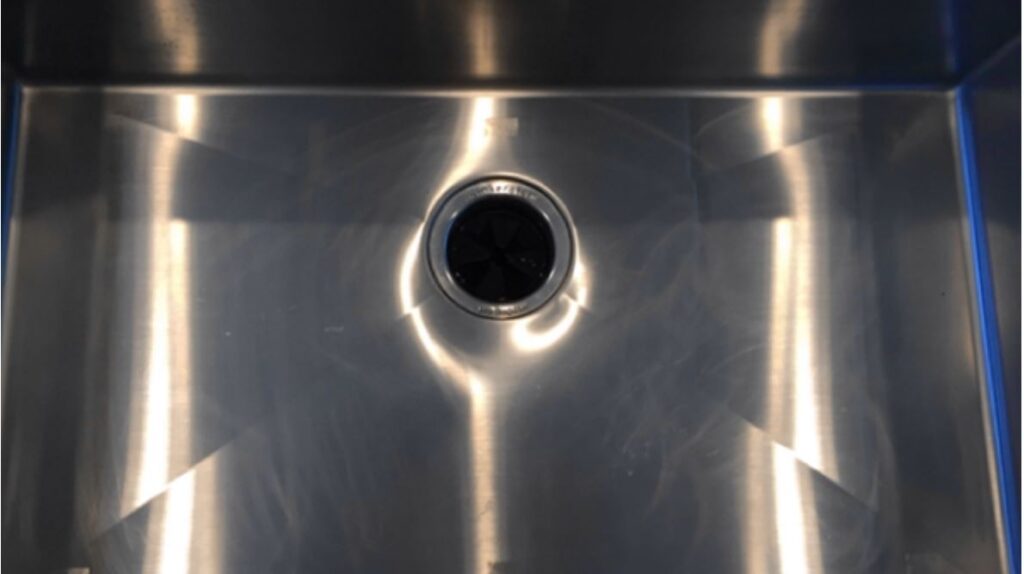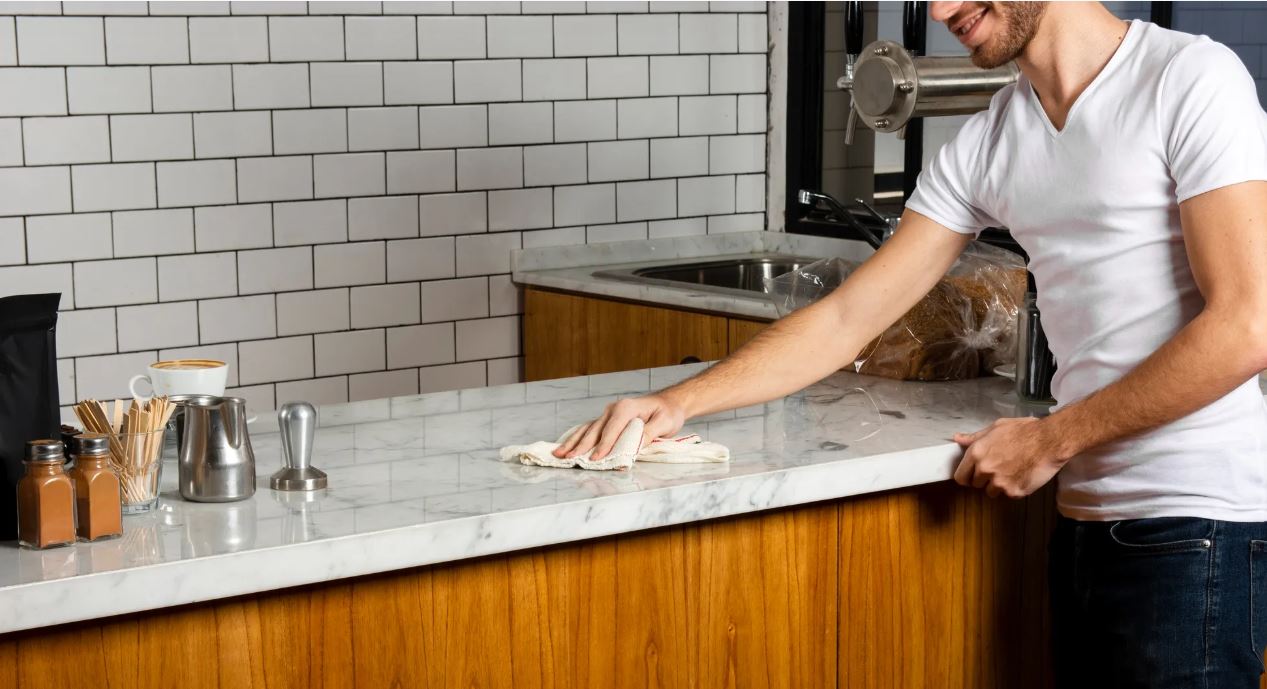Kitchen surfaces take a beating every day. Between cooking, cleaning, and general use, countertops and appliances often show signs of wear. One common concern among homeowners is stone countertop stain removal. Stains from wine, oil, and acidic foods can penetrate natural stone and leave permanent marks if not treated promptly. Maintaining surfaces properly helps preserve their function and appearance over time.
Know Your Surface Materials
Not all kitchen surfaces are created equal. Granite, marble, quartz, and laminate each have their own maintenance needs. For example, natural stone is porous and requires sealing, while quartz is non-porous and easier to clean. Stainless steel appliances also differ from enameled or coated finishes. Knowing the material you’re working with helps you choose the right cleaning approach and avoid damage.
Appliance finishes also need specific care. Stainless steel resists rust but is prone to fingerprints and smudges. Painted surfaces or vinyl-coated panels may chip or peel if cleaned too aggressively. Tailoring your cleaning methods ensures durability.
Everyday Habits for Clean Surfaces
Good habits make all the difference. Wipe down counters daily using a soft cloth and a mild cleaner. Avoid harsh chemicals like bleach or ammonia unless the surface specifically allows it. Acidic substances such as lemon juice or vinegar can etch stone and damage sealants, so always use pH-neutral solutions.
For appliances, microfiber cloths are ideal. Clean along the grain of the stainless steel to avoid streaks. Warm, soapy water followed by a clean dry towel usually does the trick. Avoid scouring pads or steel wool, as they can scratch the surface permanently.
How to Deal with Stubborn Stains
Despite your best efforts, stains still happen. Food spills, oil splashes, and even water rings can leave marks. For stone surfaces, a baking soda paste (mixed with water) can help lift light stains. Apply gently and let it sit for a few minutes before wiping clean. For deeper stains, a poultice specifically made for stone might be necessary.
Laminate and solid surfaces are easier to treat, but be cautious with strong chemicals that can strip the color or protective layer. Always test a small spot before applying any product to the whole area.
Repairing Scratches and Chips
Over time, scratches and chips can appear on counters and appliances. For laminate or wooden countertops, light sanding followed by touch-up paint or sealant can work well. For stone surfaces, small chips can often be filled with resin or epoxy products made for stone repair.
Scratches on appliances, particularly stainless steel, are a bit more complicated. Minor scratches can sometimes be buffed out using special polishing pads. For more serious blemishes, professional refinishing may be necessary.
Sealing Stone and Preventing Future Damage
If you have granite or marble counters, sealing them is essential. Sealer fills the pores in the stone to block out liquids and prevent stains. Depending on how often you cook or clean, sealing may be required every 6 to 12 months. You can test your countertop by sprinkling a few drops of water—if it absorbs quickly, it’s time to reseal.
Use trivets for hot pans and coasters under drinks. These small habits go a long way in preventing thermal shock, etching, and stains. Also, never use knives directly on the counter, as they can damage both the surface and your knives.
The Importance of Routine Maintenance
Routine maintenance helps avoid costly repairs later. Set a weekly schedule to wipe down counters, clean appliances, and check for new stains or damage. Use mats and liners inside cabinets and drawers to prevent moisture buildup and staining.
Keeping surfaces dry is just as important as keeping them clean. Water left behind can cause mineral buildup or leave rings—especially on stone. A quick wipe with a dry cloth after cleaning makes a big difference in appearance and longevity.
Eco-Friendly Cleaning Choices
Many commercial cleaners contain strong chemicals that can damage surfaces or harm indoor air quality. Natural alternatives like baking soda, castile soap, or diluted white vinegar (only for non-stone surfaces) can clean effectively without harsh effects.
Reusable cloths and biodegradable cleaning pads reduce waste and are better for the environment. These eco-friendly habits not only protect your kitchen but also contribute to a healthier home.
When to Bring in the Professionals
If you’ve tried DIY methods and stains or damage remain, it may be time to call a pro. Professional services have tools and techniques designed specifically for deep cleaning, sealing, or restoration. For example, stone experts can polish and reseal countertops to look like new.

Similarly, stainless appliance resurfacing is a professional process that restores the original shine and smooth finish of worn appliances. Over time, even careful cleaning won’t bring back the original look. Resurfacing can make your kitchen look upgraded without replacing appliances entirely.
Conclusion: Long-Term Care Means Long-Term Value
Maintaining kitchen surfaces doesn’t require expensive tools or hours of effort. With the right daily habits, proper materials, and timely intervention, you can keep your countertops and appliances looking new for years.
Staying proactive protects your investment, enhances home value, and keeps your kitchen a clean and inviting space. Whether it’s a simple wipe-down or full resurfacing, caring for your surfaces is always worth the time.
